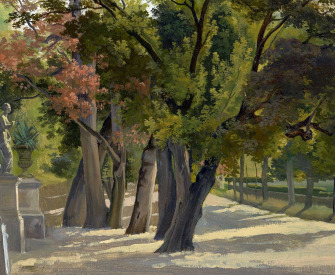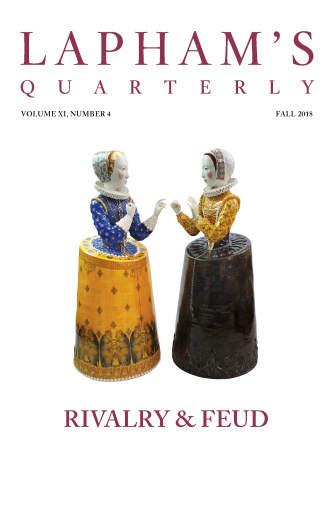There is an extreme repugnance in many persons who reside or have real estates in our commercial cities to admit the doctrine of the domestic origin of the malignant fever which has prevailed in them for a number of years past, because they say “it will injure the reputation of those cities.”
To me, this reason is not satisfactory, nor can it be well founded. If a malignant fever does, in fact, prevail frequently in a town, it makes little difference in the reputation of the place whether the disease is generated in that place or imported from other countries. Country people and foreigners do not concern themselves where a distemper originates, but whether it exists; and during its prevalence, they will not visit the place.
That the certainty of the domestic origin of the yellow fever in particular towns, and of its frequent recurrence, would prevent many persons from purchasing and building in those places may be true; but places of business will never be abandoned. This, however, is not the point. If the disease is really generated in our country, and in a particular city, the facts will ere long be ascertained to the conviction of everyone; and the longer that the conviction is postponed, the worse will be the evil, and the more difficult to be eradicated. Should therefore future proofs compel a universal assent to the truth, and recent facts and the laws of nature indicate that this will be the final event, perseverance in error will have multiplied the obstacles that oppose a remedy and rendered an acknowledgment of the truth more prejudicial to private interest.
But do facts warrant the apprehension that an acknowledgment of the domestic origin of the fever will injure the owner of real estates? It is generally admitted in New York that this fever has its origin in the city; yet no inconvenience results from the belief. Property in general is as high, and business as flourishing, since this opinion has prevailed as before, except so far as political events have been unfavorable to trade. While an epidemic prevails, business suffers; but no sooner does cold weather restrain its progress than people crowd to the city and business revives.
In Boston and Newburyport, it is agreed the yellow fever was of domestic origin; yet those towns are not deserted nor materially injured.
Baltimore is more directly in point. The yellow fever in that city has prevailed often, and with great mortality; yet the place is flourishing, under a universal belief that the disease has always originated in that city. The same is true of Norfolk and Charleston, where the same disease, in different forms, is an annual autumnal complaint.
I do not believe therefore that the belief and acknowledgment of the domestic origin of the yellow fever will materially injure the property of the citizens in places where it prevails. Men will still throng our cities, and multitudes, impelled by interest or necessity, will maintain their ground and meet danger, in hopes of escaping themselves, whatever be the fate of others. The certainty of the loss of vessels at sea every year has no effect in restraining men from encountering the danger; and the prospect of falling in battle does not prevent the enlisting of soldiers.
But whatever may be the wishes or opinions of interested men on this point, physicians and legislators ought to know about the truth, if discoverable, and found their measures on the broad basis of public happiness. The question ought not to turn on the interest of the proprietors of lots, houses, and wharves but on the security of the lives and health of the citizens. If anything is wrong in the construction of cities, or in the regulations of the police, faithful legislation and good men will search out the errors and correct them.
I hold it to be a duty for the legislators of the several American states to prohibit the division of lands in a city into small lots. It is as clear as any proposition in Euclid that thousands of lives are annually sacrificed to crowded population. It is not too much to assert that from a twentieth to a tenth of all children under two years old in the healthiest city in the United States fall victim annually to this single circumstance, the destruction of respirable air by means of close, compact population. In some of the southern towns, it has been said that no child was ever reared, so fatal is the air to their tender frames. This is probably an exaggeration, but so much is true that in many places but few children survive the insalubrity of the climate.
In Philadelphia and New York, this evil is less observable; but even in these places, what a waste of human life is to be seen every autumn! Not a day passes for months in which infants are not carried to the grave—not from any defect in their constitutions, or any want of care in parents or physicians, but for the want of a pure, wholesome air. The rich remove from town as from a seat of infection, and preserve the lives of their children; but the poor, whose lot it is to labor daily for bread, must remain in their crowded hovels, where their infants pant for fresh air and die.
If these ideas are well founded, why are they not impressed on the minds of our lawgivers? Is it not an obvious truth that human life is constantly a victim to the ancient and absurd mode of building cities, and that this evil, annually preying on our citizens, is infinitely more destructive than imported diseases? Yes, no doubt; the crowded manner of living in cities destroys fifty lives to every one that falls prey to imported infection.
London requires ten thousand persons from the country annually to supply the waste of life, and keep its population good; that is, one million in a century. This number is not more than half of the actual destruction of lives in consequence of her crowded population and its inseparable vices. By the improvements in the structure of the city after the fire in 1666, that city has escaped the plague; but the old streets which were not burned are still infested with a typhus fever at all seasons of the year.
The cities in America are yet small, but large enough to exhibit their pernicious effects on health and life. And why should we pursue the Gothic mode of crowding men together like bees in a hive? Most of the cities of the Old World were erected as castles or places of defense in time of war, when all Europe was scourged with the petty contests of feudal princes. They were calculated to accommodate as many people as possible. The consequence has been that they have all at times been ravaged with plagues. It is a moderate estimate to suppose that a hundred million people have been carried off by the plague or other epidemic fevers since the Christian era, and ninety-nine of a hundred of all those victims have been inhabitants of cities, and their diseases the sole consequence of the mode of constructing them and of a wretched police.
If these things are so, why are legislators so attentive to shut out infectious diseases from abroad, while they take no method to prevent the generation of them at home? I must repeat the idea and urge it upon the guardians of public safety; the principal danger is not from abroad—that is an old monkish idea that wisdom and experience ought to discard. The principal source of danger is at home; it is in our cities, at our doors, and in our houses.
From a letter to William Currie. Thirty years before publishing his American Dictionary of the English Language, Webster, then a newspaper publisher, wrote twenty-five open letters rebutting Currie, a Philadelphia physician who claimed that yellow fever was exclusively of foreign origin. Webster expanded his research into A Brief History of Epidemic and Pestilential Diseases. “Facts which were new to me were daily presenting themselves to my mind,” he wrote. “I was persuaded that those facts are of too much importance to philosophy, to medicine, and to human happiness not to merit publication.”
Back to Issue




